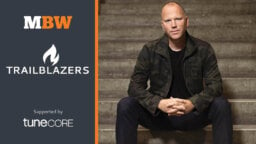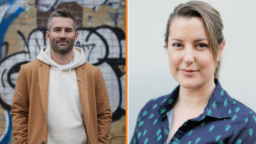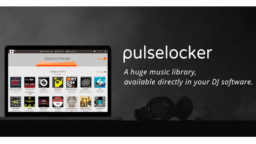The following MBW blog comes from Robb McDaniels, CEO of Beatport. Founded in 2004 as a principal source of music for DJs, Beatport today hosts an online store offering music in premium digital formats, in addition to providing unique music discovery tools created for and by DJs. The company has offices in Los Angeles, Denver and Berlin.
The first weekend of March at CRSSD, a mid-sized festival held each year in San Diego, saw the launch of Beatport’s livestreaming experiment with Twitch.
Charlotte De Witte, Carl Cox, Nick Warren and many more were broadcast live to tens of thousands of online fans via Beatport’s new Twitch channel. It was a promising beginning for what we all felt could be an important extension of the live dance music experience for fans.
And then the live music business changed, perhaps forever, as COVID-19 completely shut down performances around the world.
As a community, nobody has been harder hit than professional DJs who rely on live gigs for much of their income; and the uncertainty of just when and how things will return to normal is weighing heavily on our community.
History has shown us that periodic “shocks” to the global system can actually accelerate certain dormant or next generation ideas into the mainstream, and this has happened in a big way with livestreaming since the advent of COVID-19. After nearly six months, it’s clear that the dynamics of dance music culture are forever changed, and, in my opinion, for the better. DJs around the world are embracing this new medium, staying engaged with their fans, integrating track IDs and creative production into their performances, and even raising money for people in need.
History has shown us that periodic “shocks” to the global system can actually accelerate certain dormant or next generation ideas into the mainstream, and this has happened in a big way with livestreaming since the advent of COVID-19
Dance music clubs and festivals are communal events best experienced live. And while COVID-19 suspended those experiences as we knew them, a burgeoning virtual culture is brewing over at Twitch. It’s an environment where fans chat with each other during a real time performance, get to see their favorite DJs up close and personal, and feel connected in ways that are otherwise unattainable with social distancing.
After we broadcast that live festival in March, my team at Beatport thought we could bring our community together and raise money by creating livestream events for broadcast on Twitch.
These events would only be possible if we could convince top DJs to perform from home – not as easy as it sounds for performers used to playing in front of thousands of adoring fans each week. But if our DJ community was willing to take a leap of faith, then we knew we could help them grow their livestream audience and keep our culture alive during COVID-19.
Within three weeks we had lined up a 24hr live charity DJ stream (that ended up lasting 36hrs), called ReConnect, featuring Rüfüs Du Sol, Nora en Pure, GRiZ, A-Trak, Nina Kraviz and 31 other world renowned DJ/Producers. This first livestreaming event accelerated the adoption of livestreaming on Twitch in a major way.
Since then, more than 100 million fans in all have tuned in to watch hundreds of DJs perform on Beatport’s channels while providing much needed support for various charities during these unique times, illustrating both the demand and potential for this nascent format.
It is the artists and their management teams that made this huge leap forward possible. They were all willing to take chances and quickly adapt to the new reality even if the infrastructure wasn’t yet fully formed. Their willingness to embrace new ideas and innovate along the way led to a true transformation. The global dance community of fans have followed in kind.
In the almost six months since the live music business screeched to a halt, the livestreaming business has evolved to include things such as the widespread adoption of limited ticket sales to gain access, virtual reality, private Zoom rooms, fan donation-supported shows, and branded events where sponsors pay for talent and production. None of these innovations were entirely new to the industry, but they were largely lurking in the shadows waiting for a moment that would become the opening they needed to gain traction.
“While the closing of nightclubs and festivals around the world has irreparably harmed so many hard-working people, the bright spot is that music fans are finding new ways to connect and dance in smaller groups and more socially distanced locations.”
While the closing of nightclubs and festivals around the world has irreparably harmed so many hard-working people, the bright spot is that music fans are finding new ways to connect and dance in smaller groups and more socially distanced locations. While Pete Tong can be seen DJ’ing and dancing with his family during one of our ReConnect livestream events, my wife, daughter and I were doing the same thing hundreds of miles away, along with thousands of other fans around the world. The experience is different from being at a festival, but it’s still special and unique.
And it has become enormously popular. We see it clearly in our own data. Our livestream audiences have been enormous. Our customers are seeking out music more than ever – our download business is way up and our integrated streaming service, Beatport LINK, has more than doubled in subscribers in the past four months.
The pandemic may have forced people into their homes, but they are still DJ’ing, dancing and partying with family and friends in their respective “bubbles”. You only need to watch one of our ReConnect events to see that dance music culture is as strong as it has ever been.
While we all eagerly await a return to nightclubs, music venues and festivals, it seems quite clear that, rather than shut us down, COVID-19 has expanded dance culture in unforeseen ways that will only strengthen our community bond.Music Business Worldwide





